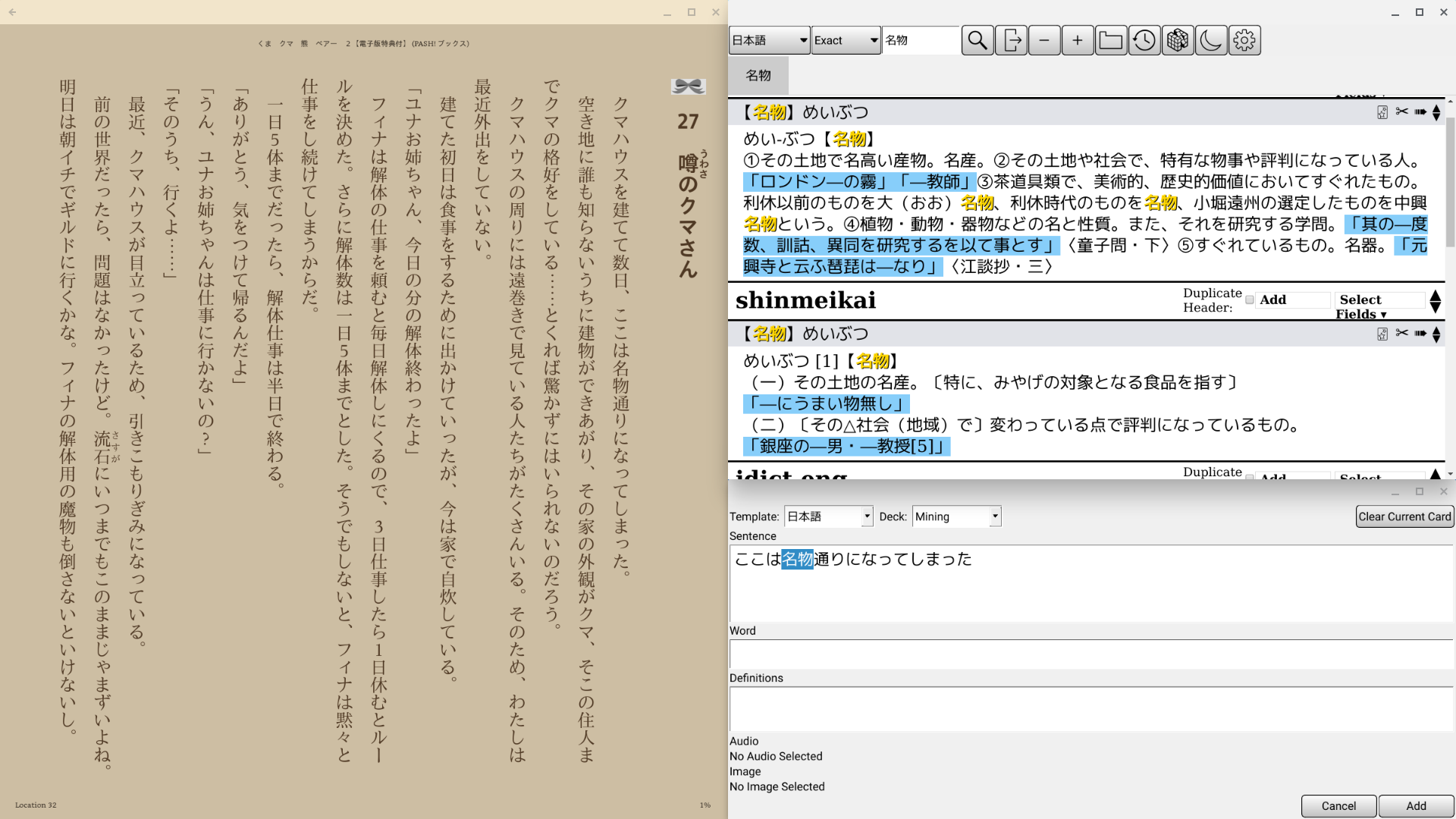Installing Anki on a Chromebook
Chromebooks are surprisingly decent machines to do some light hacking and also to study and practice Japanese on the side.
The time I spend mining for cards and doing reviews with Anki these days is evenly split between my Windows PC and my Chromebook. However, when setting up my workflow for the first time I found the resources about Anki on ChromeOS to be quite lacking, so I decided to write something about it.
Prerequisites
You will need a Chromebook that supports Linux Apps.
Installation Steps
First off, we need to differentiate if you are running on amd64 or arm, run the following command: uname -m
If you see some text with x86_64 then you need to follow both Step 1 and Step 2.
If you don’t see that and see instead arm or something similar, then you need to stop at Step 1 since the Anki project does not offer arm-compiled binaries to install. You will have to use an older version from Debian.
Step 1) Debian (old) Anki version from repositories:
- Launch the Linux Apps terminal
- Run the following command:
sudo apt-get update && sudo apt-get intall anki- If it asks for permissions or confirmation, just hit yes
Now you should have an oudated version of anki with all its dependencies running on your machine.
Step 2) More recent stable releases from the official project
However you are not done yet. We need to download the actual useful latest stable version of anki from their site and install it on top of the default one.
- Go to the releases page and download the
linux-amd64.tar.bz2file of the version you want. - run
tar xjf <file>on the tar.bz2 file you just downloaded - run
sudo make installin the folder you just extracted
And you’re done! Enjoy your new Anki.
Installing add-ons
Add-ons work like everywhere else, however if you want to locate your add-ons directory to install custom ones, they are located at:
~/.local/share/Anki2/addons21/
Getting sound/audio clips to work
You will need to install either mpv or mplayer to get audio clips in your cards to work:
sudo apt-get install mpv
Troubleshooting
Anki does not start with the error “qt: Could not initialize GLX”
This seems to be a problem related to arm Qt libraries not supporting OpenGL rendering.
Run the following before launching Anki:
export QT_XCB_GL_INTEGRATION=none
Running Android apps side by side
The great advantage of Chromebooks is that you can run Android apps side by side with your anki setup to get easier card mining. For example the following picture is running the kindle Android app with my card mining set up on the side:
